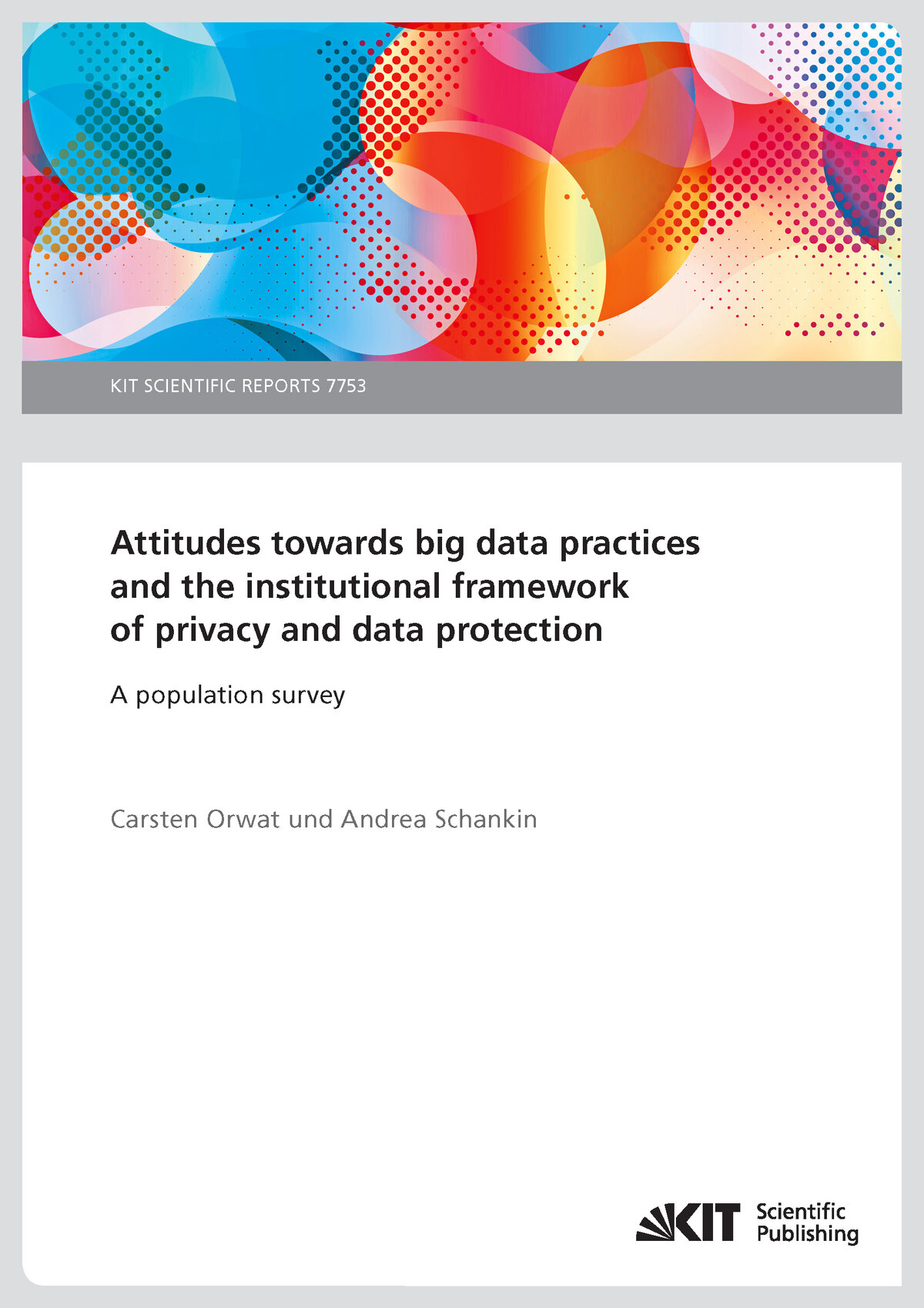Attitudes towards big data practices
What do people think when the application of big data has a direct impact on their personal life? To find out, Carsten Orwat (ITAS/KIT) and Andrea Schankin (TECO/KIT) in the project ABIDA (Assessing Big Data) confronted over 1300 persons in Germany with four scenarios on big data practices: discrimination in retail, credit scoring, differentiations in health insurance, and differentiations in employment. The attitudes about the scenarios were set into relation to demographic characteristics, personal value orientations, knowledge about computers and the internet, and general attitudes about privacy and data protection.
One of the major results: The anticipated personal advantage of big data-based differentiation and personalization (e.g., lower prices in retail or lower insurance tariffs) is minor compared to the suspicion that companies would only try to increase their profits. As one of the consequences, respondents agreed to easy control options and regulations by the state. Furthermore some of the features of big data practices, such as the use of data from the internet (e.g., from online social networking sites), automated decision-making by computers, and the selling of data to other companies, were unambiguously rejected irrespective of demographic characteristics or personal values.
Challenge to the institutional framework of data protection
Furthermore, the study confirms previous empirical findings that big data challenges the current institutional framework of privacy and data protection in Germany and Europe. For example, most of the respondents stated that they rarely read privacy policies and even less frequently understand them. A majority of the population does not know and use the rights to correct or erase certain personal data and to request information about their processing. According to the researchers, this is contrary to the intentions of the fundamental right of informational self-determination to ensure a free and autonomous development of personality and free speech in informational contexts. (30.01.2019)
Further information:
- Full text study Attitudes towards big data practices and the institutional framework of privacy and data protection
- Data set for the population survey on KITopenData
- ABIDA project page on the ITAS website


